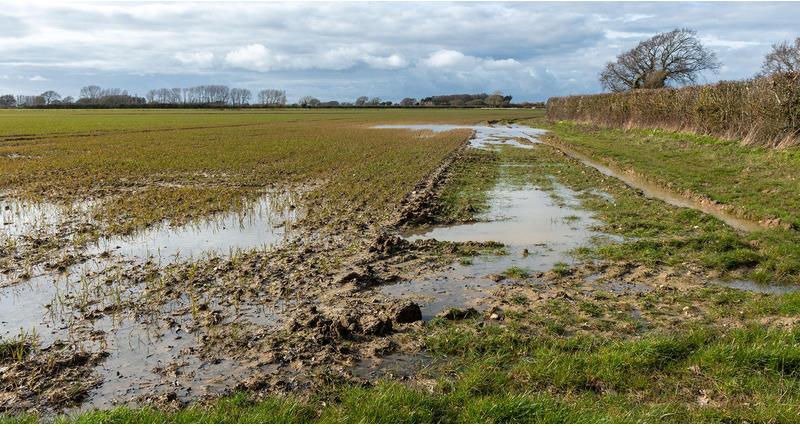The ADA (Association of Drainage Authorities) Flood & Water Conference brought together members of flood risk and water management authorities from across the UK and saw NFU Vice President Rachel Hallos deliver a keynote speech.
The event, aimed to facilitate discussion on key policy issues, included speakers such as Emma Hardy, Minister for Water and Flooding, Julie Foley, Director of Flood Risk Strategy & National Adaptation at the Environment Agency, Professor Jim Hall. Professor of Climate & Environmental Risks at Oxford and Michael Sly MBE, NFU Sugar Board chair and chair of the North Level District Internal Drainage Board.
NFU’s commitment to water issues
Rachel began by emphasising the NFU’s commitment to addressing critical water-related issues facing the nation.
She stressed that great strides can be achieved through close collaboration between all stakeholders in the water sector.
Farmers, she argued, must be central partners in developing solutions.
Rachel highlighted that 58% of the UK's most productive, grade 1 arable land lies within floodplains. When such land is inundated by seawater, it can take up to nine years to recover. This poses grave threats to the country's food security.
“The importance of collaboration and leveraging local knowledge to provide tailored, practical solutions cannot be overlooked.”
NFU Vice President Rachel Hallos
She said: “This year’s weather has been the second worst harvest on record – a stark reminder of agriculture’s vulnerability to water-related extremes.”
Comprehensive plan for water infrastructure needed
While farmers use less than 2% of abstracted water, they often rely on rivers and boreholes in drier areas – underscoring their critical dependence on reliable water supplies. »ĘĽŇ»ŞČËVice President also noted that three-quarters of the UK’s imported fresh produce comes from countries facing even greater water stress.
Rachel warned that the lack of water is constraining growth across various sectors. She said the “nation’s thirst for water is increasing, not slowing” and stressed the vital need to safeguard the UK’s food security, environment, and livelihoods by developing a comprehensive plan for water infrastructure.
Tackling the problem
To address these challenges, the NFU would like to see the development of an integrated water management strategy.
This framework must give farmers a central role in improving water quality and managing both floods and droughts. Rachel called for clear government leadership in developing this strategy, stressing the need for longer-term investment, better maintenance of water infrastructure and strong engagement with stakeholders.
“The importance of collaboration and leveraging local knowledge to provide tailored, practical solutions cannot be overlooked,” she added.
Rachel pointed to the work of the Rural Flood Resilience Partnership, which enables farmers and rural communities to strengthen relationships and jointly develop solutions to protect their businesses and homes from flooding.
She emphasised that local delivery could be more efficient and enable capital schemes to be better tailored to the local area, encouraging local organisations to invest.
Michael Sly, NFU Sugar Board chair, and chair of the North Level District Internal Drainage Board, which is responsible for the water level management of 34,000 hectares in the Fens of North Cambridgeshire and South Lincolnshire, reflected on the pivotal role of IDBs (Internal Drainage Boards) and the centuries of cooperation that underpins their work.
He spoke of the collective challenges the industry is facing around water including climate change, rising water demands, increasing pressures on ageing assets and infrastructure, and outdated funding systems. He challenged those present to think creatively to find regional and local solutions, and for Defra to take the lead on policy making and legislative process to make things happen.
What next?
In closing, Rachel issued a clear call to action: “It is vital we act to safeguard our nation’s food security, environment and livelihoods by developing a proper plan for our water infrastructure.”
»ĘĽŇ»ŞČËstands ready to be a central partner in this endeavour, drawing on the wealth of knowledge and experience within the farming community.



